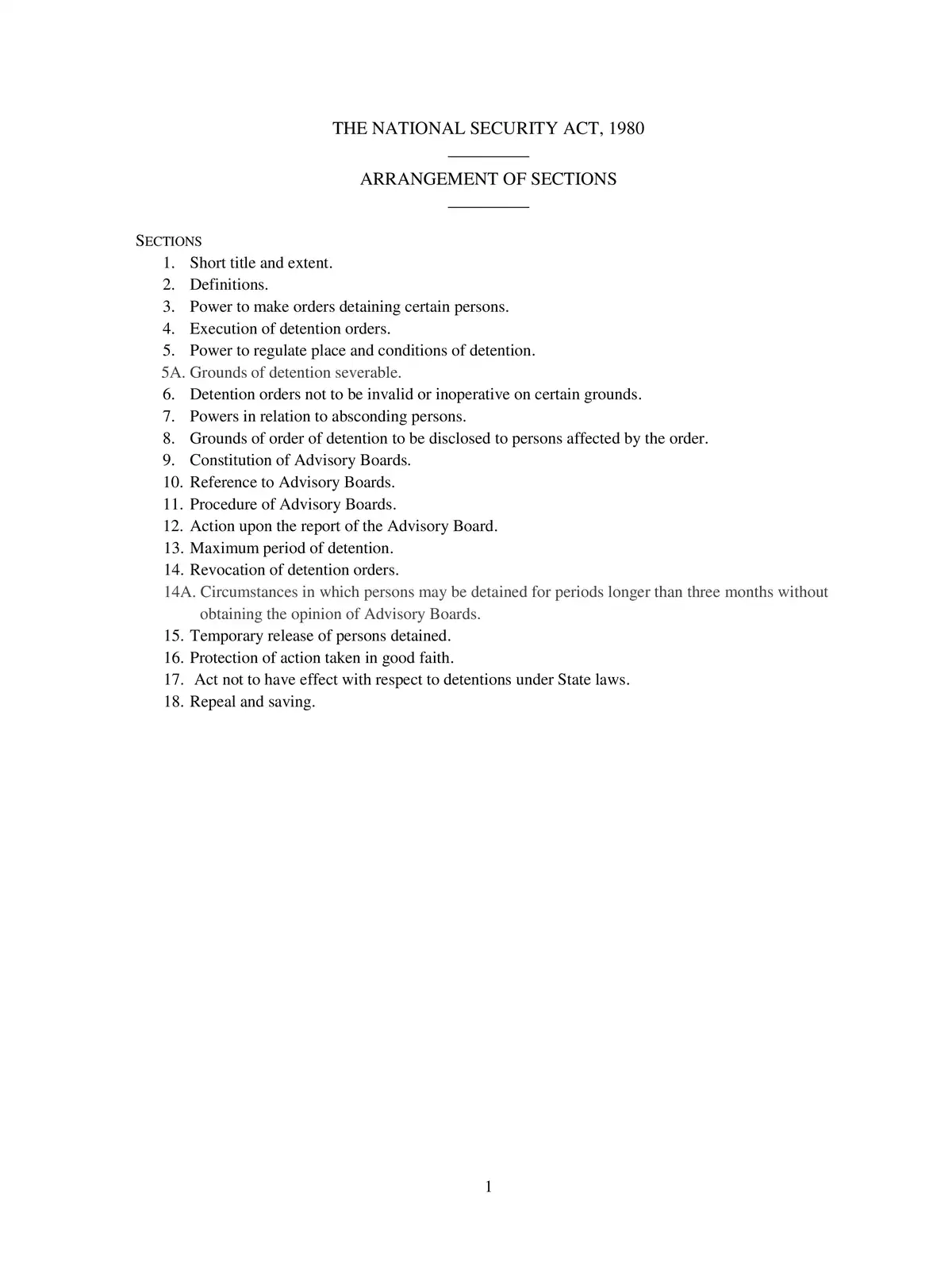The National Security Act, 1980 - Summary
The National Security Act, 1980, is a crucial law designed to protect national security and maintain public order in India. It empowers the government to detain individuals who are perceived as threats. This act plays a vital role in ensuring the safety and peace of our nation.
On September 23, 1980, former Prime Minister Indira Gandhi signed the National Security Act into law.
Key Points of The National Security Act, 1980
- The act allows for months of imprisonment before a trial occurs.
- Individuals can be detained by either the states or the central government if their actions threaten India’s security.
- Those who might endanger India’s international relations can also be held under this act.
- The Act aims to ensure peace and order within the community.
- It allows the government to detain foreigners, restrict their movement, or deport them from India.
- The regulations of the Act are reviewed quarterly to ensure they remain relevant.
Time Period of Detention Under The National Security Act, 1980
A person can be detained without any charges for a maximum of twelve months. Initially, an individual may be held for up to ten days without being told the reasons for their detention. Although they can appeal to a high court, no lawyer is allowed to accompany them during these proceedings.
To learn more about The National Security Act, 1980, you can download the PDF file from the link provided below. 📥
